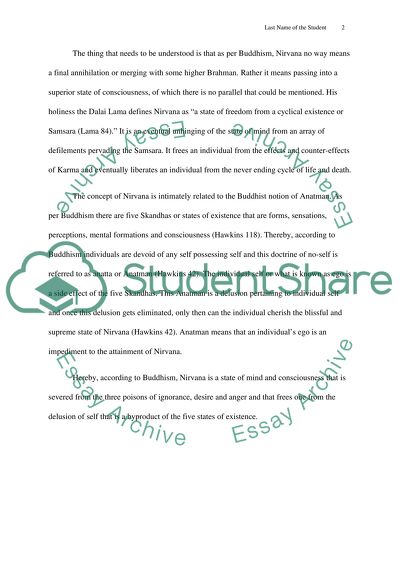Explain the Buddhist concept of nirvana. What is its connection to Assignment. Retrieved from https://studentshare.org/religion-and-theology/1685674-explain-the-buddhist-concept-of-nirvana-what-is-its-connection-to-anatman
Explain the Buddhist Concept of Nirvana. What Is Its Connection to Assignment. https://studentshare.org/religion-and-theology/1685674-explain-the-buddhist-concept-of-nirvana-what-is-its-connection-to-anatman.


